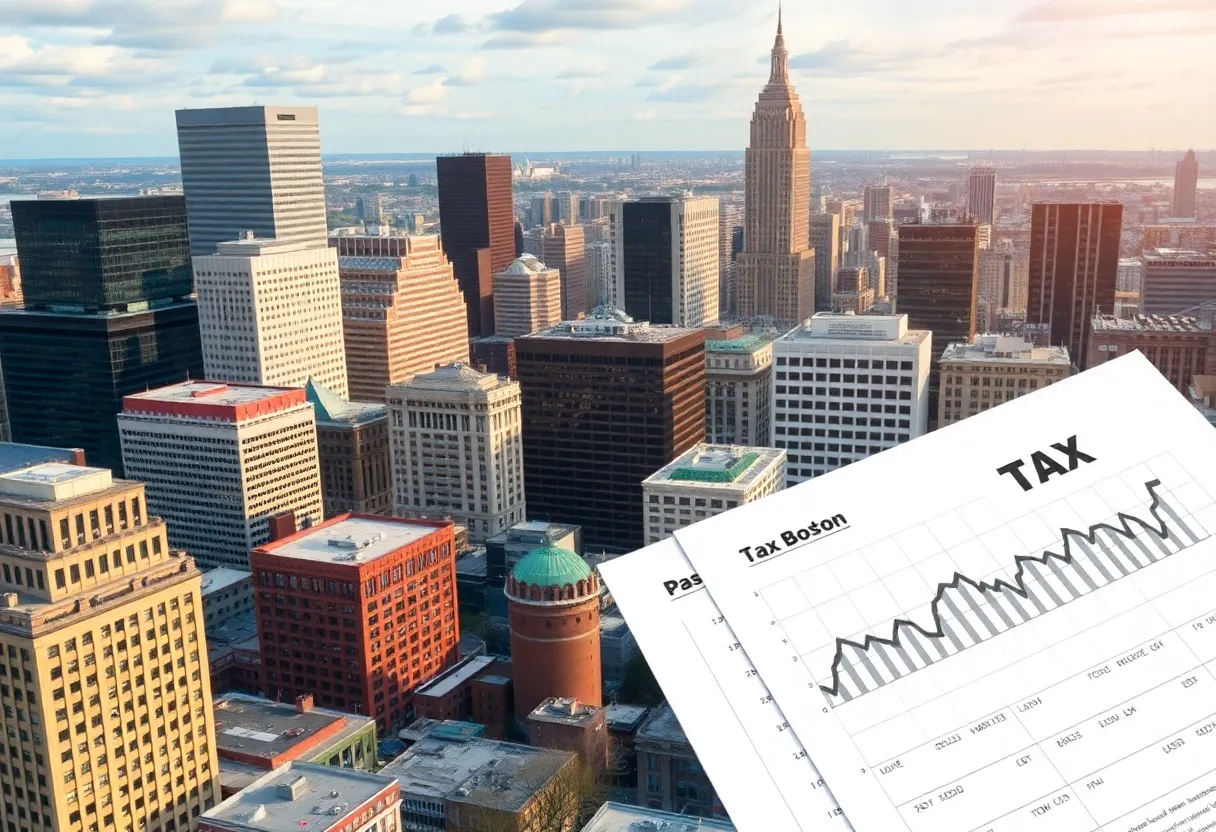News Summary
Commercial property owners in Boston are encountering unexpected tax penalties during abatement filings, termed the ‘hidden penalty.’ This trend leads to increased property values and taxes, raising concerns about the financial stability of businesses. An analysis shows an average over-assessment of 37% in office properties, predicting significant budgetary shortfalls due to declining values. The situation raises questions about the city’s tax policy and its impact on the commercial real estate market as the mayoral election approaches.
Boston – Commercial property owners in Boston are grappling with unexpected tax penalties due to a phenomenon termed the “hidden penalty” during tax abatement filings. This situation is leading to increased assessed property values and significant hikes in property taxes, straining the financial stability of businesses in the city.
An analysis by Daniel Swift, a principal at Ryan, highlights a troubling trend where property owners are seeing their assessed values raised rather than lowered following tax appeals they believe are warranted due to excessive initial assessments. The implications of this trend are severe, with affected property owners facing additional property taxes amounting to thousands of dollars, some nearing $400,000.
For fiscal year 2025, the total assessed value of office properties in Boston reached approximately $33 billion, generating an estimated $865 million in property tax revenue for the city. Swift’s findings indicate an average of 37% over-assessment across the office property sector, suggesting a significant overvaluation of nearly $9 billion and over-taxation that could exceed $200 million.
Impact on Business and Budgets
The city’s fiscal landscape is further complicated by predictions from the Boston Policy Institute, which suggest that office property values could decline by 35-45% within the next five years. Such decreases could exacerbate an existing budgetary shortfall projected to reach $1.7 billion.
Property owners appealing their assessments have encountered unjust inflations in their property tax assessments. This raises constitutional and due process concerns, especially given that they are not provided with the proper notice of these changes. The appeal process, traditionally designed to establish fair market values, has seemingly inverted its function, generating unnecessary fees for properties that have actually seen a reduction in value.
Adjustment Trends and City Response
Despite adjustments made in fiscal year 2025—where Class A office properties saw assessments reduced by 4.5% and Class B/C properties by 12.8%—the current assessments are still inflated by an average of 37% above recent sales prices. The trend of declining office values is worsening, far exceeding prior projections, which originally estimated drops of only 20-30%.
In response to these challenges, Mayor Michelle Wu has previously undertaken efforts to shift the property tax burden more heavily onto commercial properties through a home rule petition. Critics have voiced concern that this policy could negatively impact the business environment further and discourage companies from investing in the city.
Future Considerations
As the mayoral election approaches, candidates are being scrutinized regarding their strategies for improving the commercial property taxation environment to attract businesses back to vacant buildings. The necessity for a balance between protecting residents financially through tax burdens and maintaining an attractive landscape for businesses continues to spark debate among stakeholders and the general public.
Supporters of the current tax shift argue it is essential for the financial well-being of city residents, while opponents contend that this approach may lead to increased costs for consumers and destabilize the commercial real estate market. With property taxes constituting 71.1% of Boston’s budget, the implications of these assessments bear a significant weight for the city’s financial future.
While the Wu administration disputes Swift’s analysis, asserting that Boston’s property valuations align with state law and accurately reflect market conditions, the concerning trends in property assessment raise critical questions that will need attention in the near future as the city grapples with the effects of declining office values.
Deeper Dive: News & Info About This Topic
HERE Resources
Boston Commercial Property Owners Face Rising Taxes After Appeals
Additional Resources
- Boston Herald: Hidden Tax Spikes
- Wikipedia: Taxation in the United States
- Axios: Boston Commercial Real Estate Report
- Google Search: Boston commercial real estate
- Bloomberg: Tax Hit from Office Market Slump
- Encyclopedia Britannica: Commercial real estate
- NBC Boston: Wu Urges Approval of Tax Plan
- Google Scholar: Boston property tax assessment
- CBS News: Keller Mayor Michelle Wu
- Google News: Boston commercial property taxes

Author: STAFF HERE BOSTON WRITER
The BOSTON STAFF WRITER represents the experienced team at HEREBoston.com, your go-to source for actionable local news and information in Boston, Suffolk County, and beyond. Specializing in "news you can use," we cover essential topics like product reviews for personal and business needs, local business directories, politics, real estate trends, neighborhood insights, and state news affecting the area—with deep expertise drawn from years of dedicated reporting and strong community input, including local press releases and business updates. We deliver top reporting on high-value events such as Boston Marathon, Head of the Charles Regatta, and Boston Harborfest. Our coverage extends to key organizations like the Greater Boston Chamber of Commerce and Associated Industries of Massachusetts, plus leading businesses in finance, biotech, and insurance that power the local economy such as Fidelity Investments, Biogen, and Liberty Mutual Insurance. As part of the broader HERE network, we provide comprehensive, credible insights into Massachusetts's dynamic landscape.





